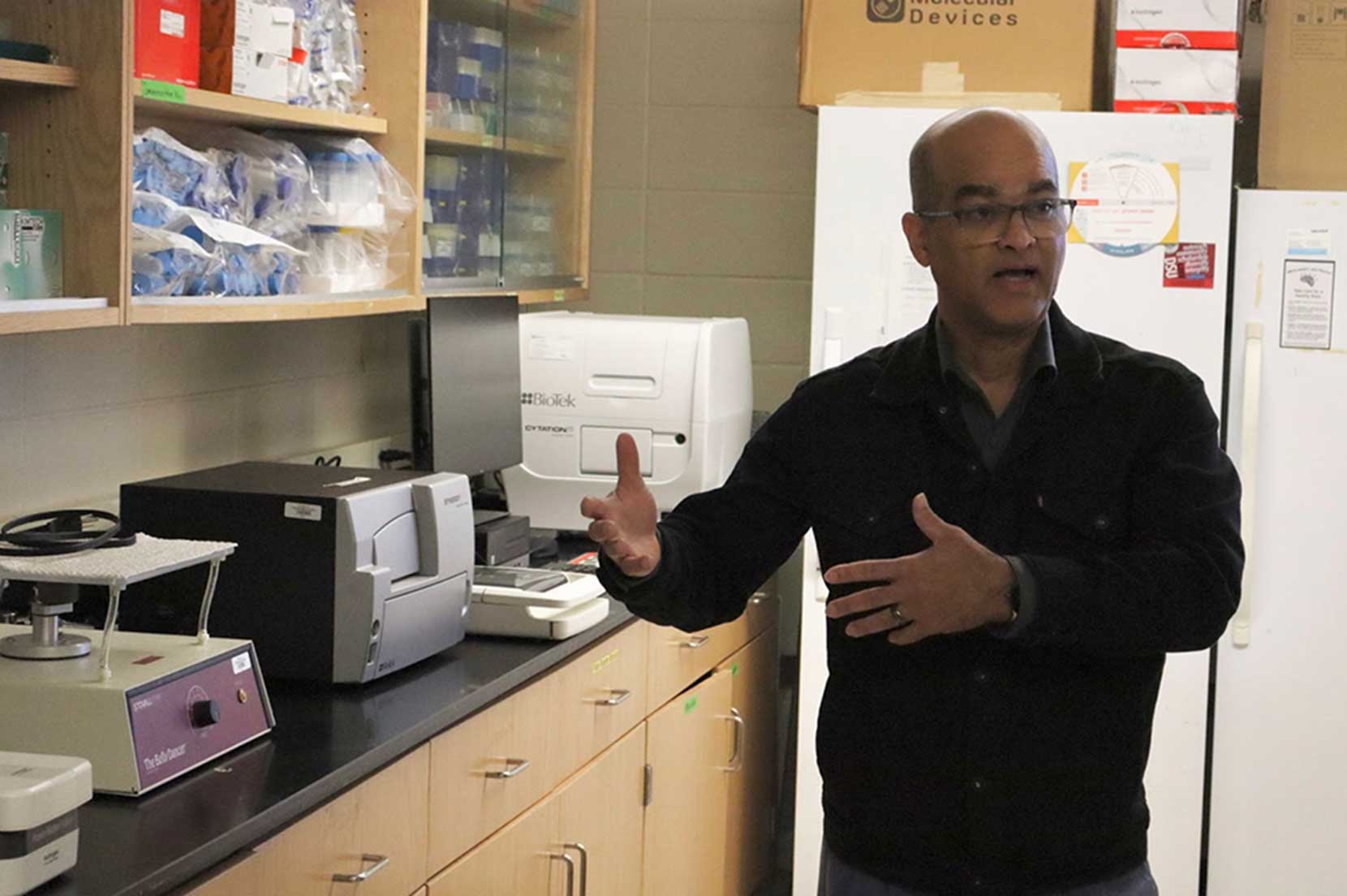
DSU Researcher Spotlight: Dr. Karl Miletti
Dr. Karl E. Miletti-González is an Associate Professor of Biology in the College of Agriculture, Science and Technology. As a researcher of the Interdisciplinary Health Equity Research (IHER) Center, he was a 2023 recipient of the Investigator Development Core’s Pilot Grant for his ongoing work on triple-negative breast cancer.
Last month, Dr. Miletti had the opportunity to participate in a community discussion surrounding his research as part of a collaboration with the IHER Center’s Community Engagement and Development (CED) Core. His work in researching the health disparities highlighted in the occurrences of triple-negative breast cancer – as well as his subsequent efforts to engage with and receive feedback from community members whose lives have been impacted by breast cancer – represent many of the central goals of the IHER Center, and he has subsequently been selected as a Spotlighted Researcher at the CED Core.
A research focus on triple-negative breast cancer
“I am a cancer researcher. I study how cancer cells respond to signals in their environment. This subfield of cancer research is called cell signaling/signal transduction. Currently, I am exploring why triple negative breast cancer (TNBC) is seen more frequently among African American (AA) than among European American (EA) women. I want to know if genetics can in part explain such differences.”
“In my lab, I test and compare TNBC cells from AA women and from EA women to investigate whether they react differently to the same stimuli. So far, we have not found differences in typical behaviors or responses, except for the response to hydrogen peroxide, a chemical that can kill cells. This difference might help scientists and physicians to develop treatments specific for different races and/or ethnic groups.”
“My research is dedicated to study the regulation of the invasive phenotype of cancer cells by the CD44 intracytoplasmic domain (CD44-ICD), a functional element of the gamma secretase-dependent CD44-mediated signal transduction pathway. I hypothesize that the CD44-ICD functions as a ‘molecular on/off switch’ of the Matrix Metalloproteinase-9 (MMP-9) gene via interactions with p53 (off) and/or Runx2 (on) on the MMP-9 promoter.”
Dr. Miletti-González’s career path
“I became interested in studying cancer cells because many of the men and women in my family have had cancer – This still motivates my work.”
“While at the Rutgers Cancer Institute of New Jersey, I worked on uncovering the molecular mechanisms that confer CD44 the ability to promote an increase in invasion and multi-drug resistance in breast and ovarian cancer cells. I first-authored a pivotal paper in the CD44 signal transduction field describing a novel response element in gene promoter regions that the CD44-ICD binds to regulate gene expression. Also, a novel CD44-ICD interaction with transcription factors p53 and Runx2 are described as another regulatory mechanism of gene expression, particularly of the metastasis-related gene MMP-9.”
Research at Delaware State University and the IHER Center
“Now at Delaware State University, I have been applying this knowledge to other challenging problems that I hypothesize can be related to the CD44-ICD-mediated signaling pathway.”
“Based on recent preliminary data that showed higher resistance to oxidative stress in CD44 positive AA-derived TNBC cells compared to CD44 negative EA-derived TNBC cells, I hypothesize that as in the case of MMP-9, the glutathione peroxidase 2 (GPX2) gene (transcriptionally regulated by Nrf2/NFE2L2), known to be involved in promoting increased chemoresistance in tumors, can be regulated by the CD44-ICD-mediated signaling pathway in TNBC cells by reducing levels of reactive oxygen species. Further understanding of a potential crosstalk between CD44, Nrf2/NFE2L2 and its transcriptional target genes, may provide molecular mechanistic details to validate their use as therapeutic targets in TNBC.”

